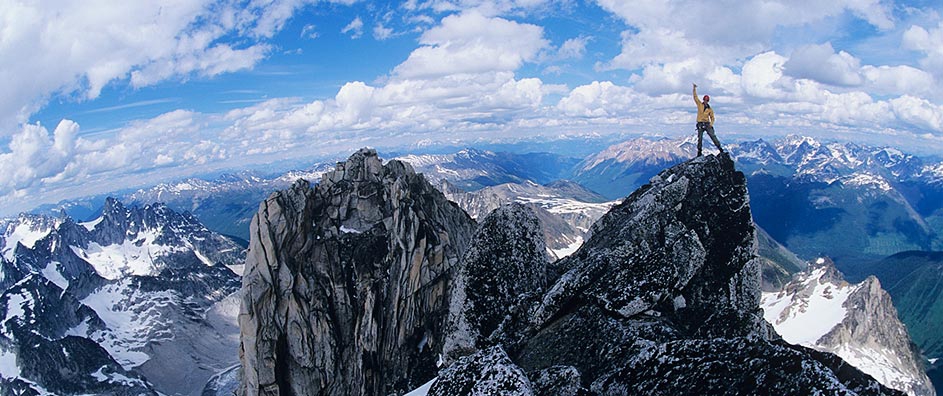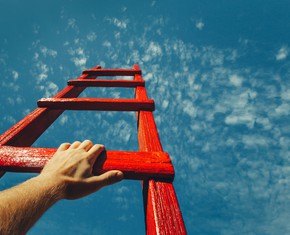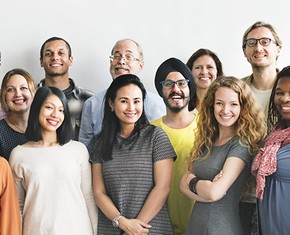The views expressed in our content reflect individual perspectives and do not represent the authoritative views of the Baha'i Faith.
My friend Milo had such a small stature that he had to buy his clothes in the boy’s section of department stores. Barely five feet tall far into his late teens, he still looked pre-pubescent. Always the smallest kid in his class, Milo suffered throughout his teenage years, not only because he had an unusual name but because everyone around him grew up physically, and he didn’t. Teased and bullied unmercifully, especially by the boys who had the bodies but not the minds of men, Milo had to develop a deep inner fortitude just to get through life.
Outwardly, many of his peers saw Milo as a coward. He shied away from physical confrontations, wanted nothing to do with contact sports, and avoided conflict.
But then, when it came time for Milo to face our generation’s biggest moral crisis—the Vietnam War and the military draft—he made an intensely courageous decision. Milo decided that he opposed the war and the draft, and rather than get out of them both by relying on his diminutive size or some trumped-up medical excuse or a series of student deferments, Milo decided to go to prison. He could have fled to Canada, like many young men of draft age. He could have gone to Sweden, where the government welcomed American draft resisters. He could have avoided it all by simply traveling around the U.S. and maintaining no fixed address, like lots of people did. But he did none of those things.
Instead Milo refused, completely, to take part in the military’s system of procuring young men to serve as cannon fodder in an unjust war. He refused to take a draft physical, because he had decided that the draft itself was immoral and unjust, too. He refused induction into the military, as well. That got him arrested and jailed. He had a very swift trial, and at the end the judge sentenced him to four years in a federal prison.
Milo knew that all of this would take place before it happened. In fact, he wanted it to happen. He wanted to demonstrate to the system, he told me, that it was wrong. He believed that the system would never change unless people like him stood up to it. He wanted to show, in an act of conscience, that he had the moral courage to confront that system.
So in the end Milo did spend four years in prison—and you can probably imagine, given his size, the kinds of things he went through there. While I went to war, Milo fought a war of his own.
Milo took a completely different path than the one I took. Baha’is, who obey their governments, believe that the preferable response to war involves becoming a conscientious objector who does not take up arms and kill others, but who serves in the military and tries to save lives. Milo respected the path I took, and I respected his. I thought, even during the most difficult times I went through in combat, that Milo had made a particularly morally brave decision, one very few people had the conviction or the courage to make.
That, I suppose, defines true moral virtue: the ability to sustain an inner conviction in the face of great tests and difficulties. This kind of inner spiritual fortitude, I’ve learned over the course of my life, is a very rare and remarkable quality. It comes from inside, emanating from the strongest part of the human spirit.
You can only face your fears with courage, the Baha’i teachings say, when the “susceptibilities of the spirit” control your life:
How powerful the spirit of man, while his body is so weak! If the susceptibilities of the spirit control him, there is no created being more heroic, more undaunted than man; but if physical forces dominate, you cannot find a more cowardly or fearful object because the body is so weak and incapable. Therefore, it is divinely intended that the spiritual susceptibilities of man should gain precedence and overrule his physical forces. In this way he becomes fitted to dominate the human world by his nobility and stand forth fearless and free, endowed with the attributes of eternal life. – Abdu’l-Baha, The Promulgation of Universal Peace, p. 264.
The true source of courage, Abdu’l-Baha wrote, arises from love and faith:
Fear, one of nature’s most satanic forces, is powerless before love and faith.
The eradication of fear, which holds most of humanity in a grip more relentless than death, itself, and is, alas, only too well founded, in view of the unrestrained and selfish disregard of the rights of men by those who at present control the means of livelihood—can be accomplished only by the adoption of the balanced principle of moderation we have endeavoured to set forth. By the eradication of fear, Baha’u’llah says “the very nature of man will be changed.” Fear, an inheritance of the animal world, is, like darkness, a manifestation of the sinister, negative power of Nature. When hope and happiness arise side by side with it, it vanishes, even as darkness is found to be non-existent when the light shines. – Abdu’l-Baha, Star of the West, Volume 10, p. 131.
Milo had love and faith—he loved humanity and didn’t want to kill anyone, so he sacrificed his own freedom and well-being to make that possible. He had faith in the ultimate triumph of God’s justice, so he sacrificially submitted himself to the justice system to try and make it fairer. Regardless of whether or not you support his decision, or even think it was wise, you have to admit that it definitely took a considerable amount of sacrifice and moral courage.
What would you do in his place?
You May Also Like
Comments

















I had to read the above quote of Abdul-Baha in ...the PUP to find out about the the context. I believe He also means that human mind and intellect which are unique are emanations of the spirit that makes amazing inventions and achieves astonishing discoveries. The power of spirit knows no fear.